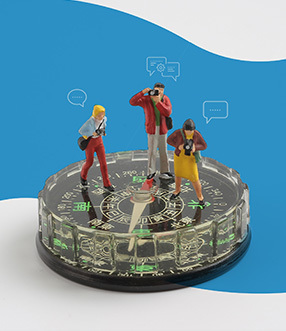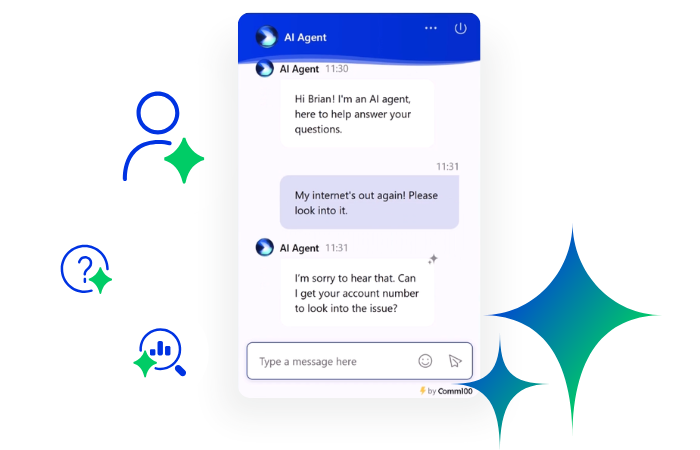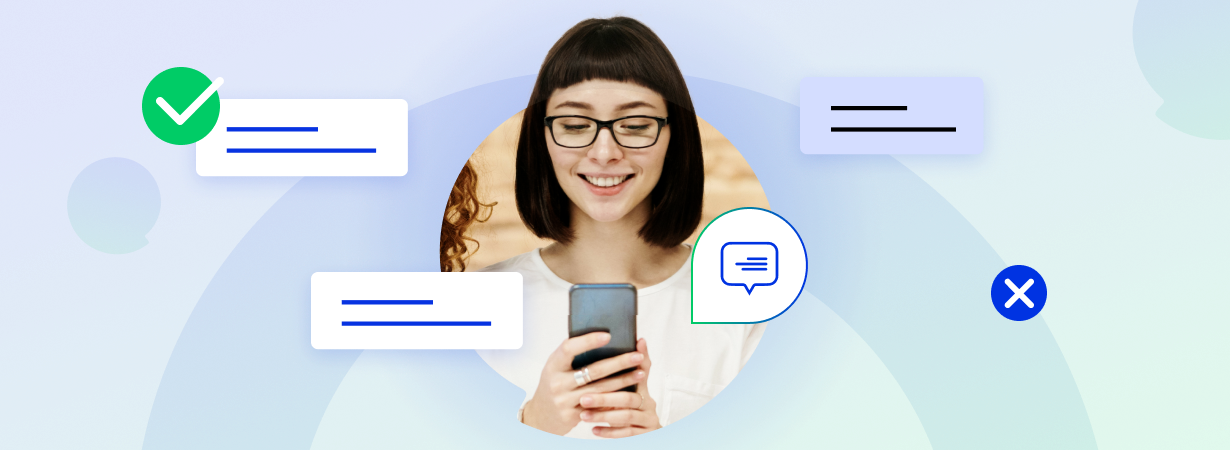“Free” is one of the most powerful sales words of all times. From our attraction to free shipping to our draw to Buy One, Get One (BOGO) offers, advertisers have long understood – and taken advantage of – the effect that the word “free” has on our brains.
According to behavioral economists, consumers overwhelmingly perceive free items as being worth more than their face value. We flock to free goods because we feel like we are getting the low-hanging fruit – or in other words, a resource that can be attained with little to no effort. We seek free products because we perceive them as being free of financial risk – because in theory, they are an aversion to loss.
The problem is that these ideas are often illusions. While there may be no harm in trying a free sample at your local grocery store, or taking part in a free trial in hopes of testing a product for purchase, free products can end up costing a lot more than you bargained for.
In the live chat industry, seemingly free software can end up selling your data, wasting your time, and even costing you more money in the end. Consider the following dangers of free live chat apps before you hit the download button.
-
Expect Limited Capacities
As great as the word “free” is, in the world of business, it usually comes with a catch. Free trials, for example, come with a familiar stipulation across industries: the trial is free for a limited number of days. BOGO offers and product bundles offer another recognizable condition: you need to buy an item to get another of equal or lesser value for free (and only certain products may apply).
Free software is prone to the same kind of catches, or limitations. Free live chat software may only allow you to message a fixed number of contacts, or to send out a fixed number of total chats. Even live chat software that advertises “unlimited free chats” comes with a debilitating stipulation: only one agent may be allowed online at a time. This directly affects how well a company can attend their customers, and meet their customers’ needs.
Total chat count and the number of allotted online agents aren’t the only parts of the live chat experience that risk being limited by free live chat software. For development teams, free live chat apps typically offer very limited customization options, if any at all. These apps may present issues when integrating with existing software, such as Salesforce, or may be incapable of integration. As a result, companies may find themselves with spotty contact management capacities, and channels that are poorly integrated.
Free live chat software solutions also suffer from limited or nonexistent reporting capabilities. They may lack visitor tracking, real-time analytics, proactive chat capabilities, and other functions that set live chat apart from popular free live messaging platforms, such as Facebook Messenger or WhatsApp. Without these reports and functions, companies often find themselves at a competitive disadvantage.
Recommended for you: 7 Must-Know Differences Between Live Chat and Live Messaging
While free live chat apps typically downplay their limitations, they are often unsustainable for businesses that are serious about serving their customers, tracking their key performance indicators (KPIs), and making sustainable improvements to their live chat strategy.
-
…And a Clunky User Interface
Often, developers of free live chat software don’t waste time beautifying the user interface. This may result in a less-than intuitive design, which can complicate the live chat experience for both your customers and your agents.
Dashboards that are difficult to navigate can slow agents down during training, making it harder for agents to adapt to the system. They can affect daily operations, causing pain points for agents that affect their productivity, motivation, and levels of happiness at work.
In CCW Digital’s Winter Executive Report, 33 percent of companies voted that improving the agent experience was a top priority for their business in 2018. Out of those companies, 42 percent reported that they intended to improve the agent experience by making systems easier to use.
These companies understood the same thing: the agent experience directly affects the customer experience. By investing in quality systems rather than gambling with the unwieldy user interfaces that often accompany free live chat apps, companies show their commitment to both the agent and the customer experience.
-
Not All Free Software is Safe
Horror stories about viruses and malware have long been told to those of us who search for free products online – be it free movies, sweepstakes entries, or software. If you’re not careful when downloading free live chat apps, these horror stories can become reality.
Viruses don’t just jump out of the computer when you search for free products – they do, however, come well hidden. When you download the desktop console that accompanies free live chat software, it may come bundled with other products and scareware that will try and trick you into downloading potentially dangerous software.
Just how common is it for malware to make its way into free software downloads? Lowell Heddings, founder and Editor-in-Chief of How-To Geek tested this by running an experiment where he installed the top 10 free apps from Download.com. What he found was that even the most popular free apps bundled their downloads with “browser hijackers that redirect your search engine, home page, and put extra ads everywhere.”
According to Heddings: “Freeware software vendors make almost all of their money by bundling complete nonsense and scareware that tricks users into paying to clean up their PC, despite the fact that you could prevent the need to clean up your PC by just not installing the crappy freeware to begin with.”
This brings us to our next point:
-
If You’re Not Paying, Then You’re the Product
In the era of “free” internet services, it’s easy to forget – or not even realize – what you are trading for these services. One of those things is your personal data.
User data is a hot commodity. Companies can make a lot of money by collecting your data and selling it for purposes such as advertising, content curation, and the creation of future apps targeting users like you.
Some of these intentions are relatively innocuous: Targeted advertising, for example, can help customers see more relevant ads, and can help companies reach leads that are more likely to convert. However, as Jeff Chester, a privacy advocate and director of the Center for Digital Democracy, points out, there is little to stop companies from using the information that they’ve gathered in any way they please. According to Chester, “Because there are no online privacy laws in the United States, there’s no stop sign, there’s no go slow sign, there’s no crossing guard. The message is anything goes.”
Dave Jevans, CEO, Chairman, and CTO of Marble Security, elaborates on why this is dangerous: “Once uploaded, personal data is frequently sold to advertisers around the world,” Jevans says. “That data, in turn, can be easily stolen or purchased by cybercriminals, hackers, hostile governments, and aggressive advertising networks to mount highly targeted phishing and social media attacks.”
Free live chat software may sell the information of the parties that are using it – including that of companies and their customers – without their consent. This can put all involved parties at risk. According to Jevans: “Stolen, or more accurately ‘gifted,’ personal information poses a threat to the users themselves, their personal contacts, their employers, and any companies or banks with which they do business.”
The pushback against free apps for buying and selling customer data if gaining traction. Recently, Facebook has fallen under scrutiny for how they utilize user information, with companies like Playboy and Tesla going as far as to delete their Facebook pages over privacy concerns. As Senior Tech Correspondent, Ben Gilbert, writes for Business Insider, “The big cultural moment — urging people to #DeleteFacebook or #RegulateFacebook — is a great reminder that none of these so-called free services are truly free.”
-
Advertising Banners Affect Experience
Not only do free apps collect and sell your information, they also make money by implanting banners and annoying ads that affect your user experience.
These banners may display themselves on both the agent-facing console as well as the user-facing console. For website visitors, advertisements in the live chat window may actually be enough to discourage visitors from engaging.
Entrepreneurial technology and media executive, Jarrod Dicker, writes that live chat and messaging apps are where accessible marketing should take place – not banner advertising. According to Dicker, that’s because “It’s more personal. It’s more direct. And users will shy away from any unwanted disruption within their chat stream.” Because users have to opt-in in order to be helped – or marketed to – via live chat, it is important that companies work to remove and avoid any obstacles such as banner advertisements that could frustrate users early on.
-
Expect a Lack of Support
Unlike paid software solutions, most free software does not come accompanied with support. That means that if you have a problem with a free live chat app, the developer may never help you with that problem.
For open source live chat software, formal support may simply be nonexistent. Live chat providers that offer a free version of their live chat software may provide very limited support to their free members, forcing them to upgrade to paid accounts for quality assistance.
This lack of support can ultimately cost companies hours of troubleshooting, with no guarantee of correcting their issue.
-
…And Slow Development, if Any
When you download a free live chat app, you don’t just risk having a lack of support – you also risk that app developing at a glacial pace, or development halting all together.
When you invest in a paid live chat solution, you are investing in a company that is built around that product, and that will make constant changes to better their software. Companies like Comm100 even have feedback forums where users can offer suggestions that can help shape the development of the live chat solution.
However, developers of open source live chat software aren’t receiving income directly from the customer, and as a result won’t be pressed to make changes to a free software. This can result in stalled development, a slow release of new features if at all, and poor prioritization of improvements (for example, unpaid developers may not be willing to make or prioritize complicated changes that could majorly benefit the software). Developers of free live chat software may become overwhelmed by honest user feedback and suggestions, rather than eager to implement them.
With no contracts binding them, the developers of free software may simply abandon the project as a result of having no time to update or further development, or thanks to a loss of interest.
-
Free Products Reflect Poorly on Your Business
The rule of reciprocity teaches us that when you invest in your customers, they feel more compelled to invest in you.
Cheap customer service offerings reflect poorly on your business, and the value that you place on your customers. They can make you look unprofessional, either due to the adds within the chat window, or due to the lack of customization options available to make the chat window seem at home on your website.
While your company’s mission, the quality of your products, and the navigability of your website are ultimately the biggest contributors to your brands image, an unprofessional live chat window can damage your brand’s otherwise well-crafted image.
-
They Won’t Grow with Your Company
Free software might not grow with your company for a number of reasons.
As your company grows, you may find that the limitations of the free live chat software become increasingly restrictive. What may have initially worked for your business may no longer prove useful for your team.
For example, imagine that you have been using a free live chat app that allowed only one agent to be online at a time. For a while this works for your company – until your company experiences some growth. Now to successfully attend your customers and continue expanding, your company needs to have two live chat agents online at a time. With the free live chat software, you are out of luck.
The fact that free live chat software is not scalable can bring unnecessary growing pains to maturing companies in vital stages of their development. Additionally, companies who opt for free live chat software solutions fail to develop a quality customer/client relationship with their provider. This means that there is no one to check in to make sure that the product is meeting the company’s needs as the company continues to grow.
-
Free Products Could Cost More in the Long Run
Companies that are blinded by the idea of free live chat software may end up footing a bigger bill in the long run.
Paid live chat software often comes with valuable resources to assist in setup, installation, configuration, training, support, and maintenance. Companies that rely on free live chat software may find that without these resources, they end up spending out of pocket for third-party assistance or materials.
If you take on a free live chat software solution that is not scalable, it may cost you both money and time. Some established companies offer free live chat software as a means of eventually forcing your company to upgrade to a paid model so that you can get full functionality. If you adopt this kind of free live chat solution without accounting for your company’s potential growth, you may be forced to pay into a model that is not optimal for your company. This might include get roped into a plan that has steep price hikes, or a suboptimal payment plan.
To avoid paying into a plan that is not ideal for your business, growing companies that opt for free live chat software may need to switch to a paid solution with another company. This means that you will have to take the time to research, deploy, customize, and learn a whole new software. You will need to retrain your staff on a software that the whole team could have been an expert in, had you chosen to use it from the start. (At least late is better than never!)
The word “free” is never universally good or bad – it’s up to us to not lose ourselves in its appeal, and to judge each situation, product, and service individually.
Instead of automatically attaching to a free live chat software, be open to other affordable options. Picture where you see your company in a year or two, and go with a solution that will meet both your present and future needs. If you aren’t sure, don’t worry – you always get a free trial!
By investing early in a quality live chat solution, you will save yourself from a headache down the road, and expedite your company’s growth today.







